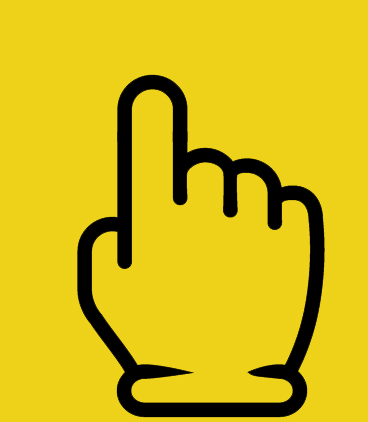
IntroductionYou have spent weeks fine-tuning your resume, creating the ideal cover letter, and thoroughly researching the business. Your dream job interview has finally been secured, and you are feeling prepared and confident. When you enter the interview room, however, everything unravels. Your speech falters, your mind wanders, and you start to perspire on your hands. You leave the room feeling discouraged and deflated because the interview was a complete failure.
You are not alone if this situation seems familiar to you. Even for the most seasoned workers, job interviews may be tense and terrifying. The good news is that your job hunt need not end as a result of a poor interview. In fact, you can recover from a poor interview and improve your chances of getting your ideal job with the correct attitude and a few crucial methods. So let us get started and investigate what to do after a bad job interview.
Why is an interview important?
The employer can determine whether you are a good fit for the position and the company during an interview, which is a crucial step in the job search process. It gives the company a chance to find out more about you, you are credentials, your experience, and your personality.
Additionally, the interview is your chance to make a good first impression and highlight your qualifications. It is an opportunity for you to exhibit your excitement for the position and the business, as well as to convince the hiring manager that you are the best person for the position.
Additionally, an interview can help you find out more about the position and the company, as well as determine whether it aligns with your values and career goals. You have the chance to discover more about the hiring manager, the team, and the corporate culture by asking questions and getting to know them better.
Reasons for bad interviews
Before you understand what to do if you are bad at interviews, it is important to know why the interview went bad. Lack of preparation is among the most frequent causes of unsuccessful job interviews. It is crucial to prepare for the interview by learning everything you can about the business, the position, and the interviewer. This will not only make it easier for you to respond to queries, but it will also demonstrate your sincere interest in the position and the organization.
If you do not prepare well, you might not know what to expect, which can cause anxiety and nervousness and have a poor impact on your performance. Your chances of being hired may suffer if the interviewer assumes that you are uninterested in the position due to your lack of preparation.
Additionally, anxiety can significantly affect how well you perform in interviews. It is normal to experience anxiety prior to an interview, but allowing those feelings to control you will make you perform poorly. It is simple to forget crucial facts, lose your line of thought, or stumble over your words when you are feeling worried. You can control your nerves and maintain your focus throughout the interview by practicing deep breathing exercises, meditation, or visualization techniques before the interview.
What to do if you have a bad job interview?
The following are things you can do after a really bad job interview:
Step 1: Reevaluate the Interview
Take a deep breath and assess the issue after a poor interview as your first action. After a poor interview, it is simple to feel defeated or frustrated, but it is crucial to maintain your composure and professionalism.
Consider what went wrong during the interview to begin with. Did you speak erratically? Did you overlook something crucial? Were there any queries that caught you off guard? It is critical to pinpoint the precise issues you encountered throughout the interview so you can fix them going forward.
Next, think about the overall impact you had on the interviewer. Did you come across as enthused, assured, and competent? Alternatively, did you come across as unprepared, indifferent, or insecure? It is critical to be truthful with yourself about how you performed and to note any areas where you could have done better.
Finally, take into account any comments made by the interviewer. Did they provide any detailed recommendations for improvement? Did they express any reservations or worries regarding your candidature? You can address any issues the interviewer may have had and suggest areas where you might improve by being aware of their viewpoint.
Step 2: Learn From Your Mistakes
The next stage is to draw lessons from the experience after assessing the interview. No matter how well or poorly an interview goes, there is always room for development. So learning from the experience is an important part of your journey to understand what to do if you have a bad job interview?
Start by pointing out the particular questions during the interview that you struggled with. Did you find it challenging to respond to some questions? Did a certain subject catch you off guard? Did you not effectively highlight your abilities and achievements? You can create a plan to improve your performance going forward by identifying these areas.
Next, think about the overall impact you had on the interviewer. Did you project a sense of professionalism, zeal, and assurance? Alternatively, did you come across as unprepared, indifferent, or insecure? Consider ways to enhance your body language, voice tone, and question-answering abilities as well as your overall presenting and communication skills.
Additionally, it is crucial to take the interviewer's comments and advice seriously. If they offered specific suggestions for improvement, think about how you may address those issues later on. If the interviewer said, for instance, that you should be more succinct in your comments, practice being more succinct when you respond to interview questions. If they were concerned about your lack of experience in a certain field, think about getting more education or training in that field.
Step 3: Look to the next one!
The last stage to recovering from a poor interview is to keep going. It's simple to become embarrassed after bad interview, but it's crucial to keep in mind that one interview does not determine the course of your career.
Start by expanding your employment search and submitting applications for new positions. Do not let a single poor interview stop you from following your career objectives and landing the ideal job. Remember that every interview is a chance for you to grow and learn and that the more you do them, the more proficient you will become.
It is crucial to keep a positive attitude and a constructive outlook. Do not let self-defeating thoughts or uncertainty keep you back. Instead, put your attention on your qualities and achievements and constantly remind yourself how much your knowledge and experience can provide. Be in the company of encouraging friends and family members who can offer guidance.
Do not be reluctant to look for additional assistance and resources. Think about working with a career coach or mentor who can offer direction and criticism on your interviewing techniques. To meet new individuals and learn about fresh prospects, go to networking events and job fairs. In order to stay knowledgeable and ready for the next interviews, keep up your education on industry developments and the employment market.
Conclusion On “What To Do After A Bad Interview”
It might be demoralising to have a poor job interview, but it is vital to realize that it is not the end of the world. Being stuck in the limbo of “What to do if you have a bad job interview?” will get you stuck at a single point in time.
You may recover and improve your chances of success in the future by taking a big breath, reflecting on the experience, seeking input, asking for it, following up with a thank-you note, and continuing on.
Keep in mind that every encounter, even job interviews, can help you develop your abilities and performance. You can find your dream job and accomplish your career goals with perseverance, practice, and a good outlook.
Hope you liked this article on “what to do if you're bad at interviews”. If you have any queries or suggestion, you can reach out at info@interview-expert.com.
For more guidance on interview preparation, contact Interview Expert

